
https://ebooknice.com/product/extending-the-scope-of-corpus-
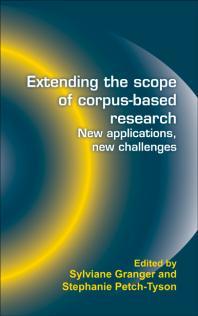
We have selected some products that you may be interested in Click the link to download now or visit ebooknice.com for more options!.
(Ebook) Biota Grow 2C gather 2C cook by Loucas, Jason; Viles, James ISBN 9781459699816, 9781743365571, 9781925268492, 1459699815, 1743365578, 1925268497
https://ebooknice.com/product/biota-grow-2c-gather-2c-cook-6661374
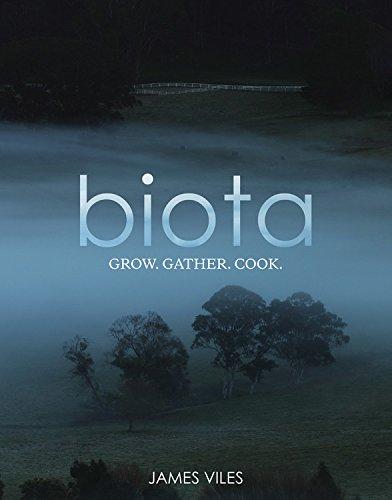
(Ebook) Matematik 5000+ Kurs 2c Lärobok by Lena Alfredsson, Hans Heikne, Sanna Bodemyr ISBN 9789127456600, 9127456609
https://ebooknice.com/product/matematik-5000-kurs-2c-larobok-23848312
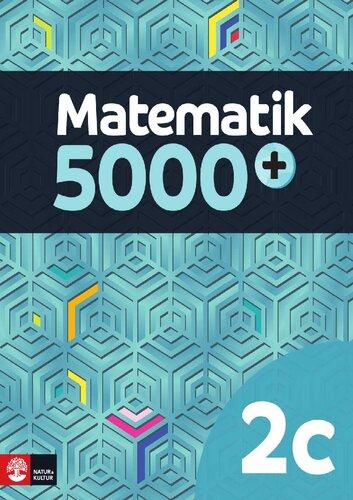
(Ebook) New developments in analytical chemistry research by Granger, Breanna ISBN 9781634634274, 9781634634731, 1634634276, 163463473X
https://ebooknice.com/product/new-developments-in-analytical-chemistryresearch-6856822

(Ebook) SAT II Success MATH 1C and 2C 2002 (Peterson's SAT II Success) by Peterson's ISBN 9780768906677, 0768906679
https://ebooknice.com/product/sat-ii-success-math-1c-and-2c-2002-petersons-sat-ii-success-1722018

(Ebook) Challenges of the New Water Policies for the XXI Century: Proceedings of the Seminar on Challenges of the New Water Policies for the 21st Century, Valencia, 29-31 October 2002 by Enrique Cabrera, Ricardo Cobacho ISBN 9780203024652, 9789058095589, 9058095584, 0203024656
https://ebooknice.com/product/challenges-of-the-new-water-policies-for-thexxi-century-proceedings-of-the-seminar-on-challenges-of-the-new-waterpolicies-for-the-21st-century-valencia-29-31-october-2002-1647838
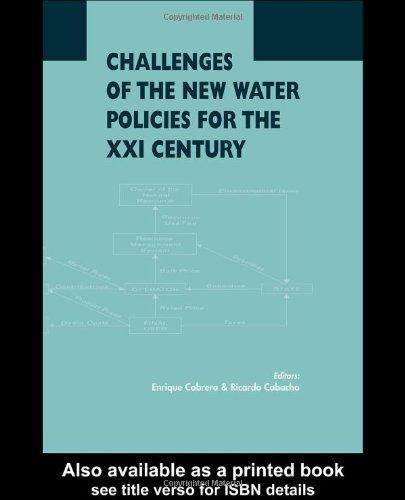
(Ebook) A Web of New Words: A Corpus-Based Study of the Conventionalization Process of English Neologisms by Daphné Kerremans ISBN 9783631655788, 3631655789
https://ebooknice.com/product/a-web-of-new-words-a-corpus-based-study-ofthe-conventionalization-process-of-english-neologisms-5220028
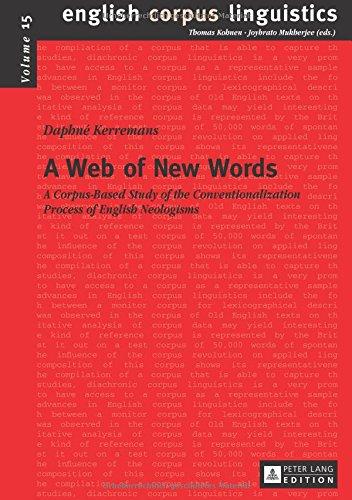
(Ebook) The New Science of Metagenomics: Revealing the Secrets of Our Microbial Planet by Committee on Metagenomics: Challenges and Functional Applications, National Research Council ISBN 9780309106764, 0309106761
https://ebooknice.com/product/the-new-science-of-metagenomics-revealingthe-secrets-of-our-microbial-planet-1367174
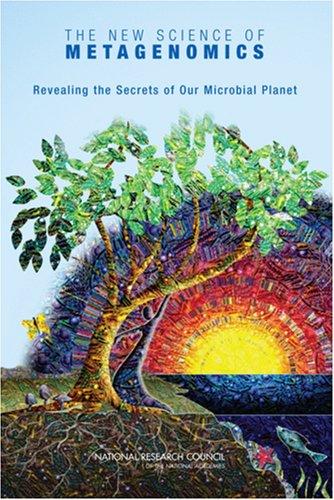
(Ebook) Phraseology in Corpus-Based Translation Studies (New Trends in Translation Studies) by Meng Ji ISBN 9783039115501, 3039115502
https://ebooknice.com/product/phraseology-in-corpus-based-translationstudies-new-trends-in-translation-studies-43472956
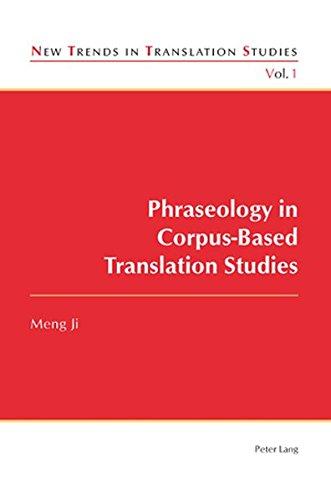
(Ebook) Master SAT II Math 1c and 2c 4th ed (Arco Master the SAT Subject Test: Math Levels 1 & 2) by Arco ISBN 9780768923049, 0768923042
https://ebooknice.com/product/master-sat-ii-math-1c-and-2c-4th-ed-arcomaster-the-sat-subject-test-math-levels-1-2-2326094
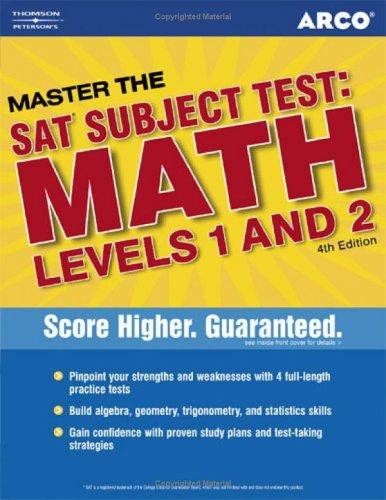
Corpora and methodology
Using the MF/MD method for automatic text classification
Inge de Mönnink, Niek Brom & Nelleke Oostdijk
experiments in parsed corpora: an overview
WebCorp: providing a renewable data source for corpus linguists
II. Corpora in language description
Shall and will as first person future auxiliaries in a corpus of
Early Modern English texts
Maurizio Gotti
The role of gender in the use of MUST in Early Modern English
Arja Nurmi
From corpus data to a theory of talk units in spoken English
Joybrato Mukherjee
The BNC and the OED. Examining the usefulness of two different
types of data in an analysis of the morpheme eco
Bernhard Kettemann, Martina König & Georg Marko
Lexical gaps
Göran Kjellmer
149
The use of native lexical items in English texts as a codeswitching 159 strategy
Hajar Abdul Rahim & Harshita Aini Haroon
The structure of children’s writing: moving from spoken to adult 177 written norms
Geoffrey Sampson
III. Corpora in foreign language learning and teaching
On clefts and information structure in Swedish EFL writing 197
Mia Boström Aronsson
Contrasting learner corpora: the use of modal and reporting 211 verbs in the expression of writer stance
JoAnne Neff, Emma Dafouz, Honesto Herrera, Francisco Martinez, Juan Pedro Rica, Mercedes Diez, Rosa Prieto & Carmen Sancho
Learning English prepositions in the Chemnitz Internet Grammar 231 Josef Schmied
Integrating networked learner oral corpora into foreign language 249 instruction
Pascual Pérez-Paredes
ListofContributors
HajarAbdulRahim,UniversitiSainsMalaysia,Malaysia
HarshitaAiniHaroon,UniversitiUtaraMalaysia,Malaysia
MiaBoströmAronsson,UniversityofGöteborg,Sweden
NiekBrom,UniversityofNijmegen,TheNetherlands
EmmaDafouz-Milne,UniversidadComplutensedeMadrid,Spain
IngedeMönnink,UniversityofNijmegen,TheNetherlands
MercedesDiezPrados,UniversidaddeAlcalá,Spain
MaurizioGotti,UniversitàdiBergamo,Italy
SylvianeGranger,UniversityofLouvain,Belgium
HonestoHerrera,UniversidadComplutensedeMadrid,Spain
BernhardKettemann,UniversityofGraz,Austria
GöranKjellmer,UniversityofGöteborg,Sweden
MartinaKönig,UniversityofGraz,Austria
GeorgMarko,UniversityofGraz,Austria
FranciscoMartinez,UniversidadComplutensedeMadrid,Spain
JoybratoMukherjee,UniversityofBonn,Germany
JoAnneNeff,UniversidadComplutensedeMadrid,Spain
ArjaNurmi,UniversityofHelsinki,Finland
NellekeOostdijk,UniversityofNijmegen,TheNetherlands
PascualPérez-Paredes,UniversidaddeMurcia,Spain
StephaniePetch-Tyson,UniversityofLouvain,Belgium
PamPeters,MacquarieUniversity,Australia
RosaPrieto,EscuelaOficialdeIdiomasdeValdezarza,Spain
AntoinetteRenouf,UniversityofLiverpool,UnitedKingdom
JuanPedroRica,UniversidadComplutensedeMadrid,Spain
GeoffreySampson,UniversityofSussex,UnitedKingdom
Carmen Sancho Guinda,EscuelaTécnicaSuperiorde IngenierosAeronáuticos, Spain
JosefSchmied,ChemnitzUniversityofTechnology,Germany
AdamSmith,MacquarieUniversity,Australia
SeanWallis,UniversityCollegeLondon,UnitedKingdom
Preface
SylvianeGranger&StephaniePetch-Tyson
UniversityofLouvain
Thechoiceof‘FuturechallengesforCorpusLinguistics’asthethemeforICAME 2001,1 the conference which gave rise to this volume, was a choice which reflectedhowfarCorpusLinguisticshascomeinarelativelyshortspaceoftime. Afterall,itisnottypicallyuntiloneisfirmlyestablished,inwhateverdiscipline, thatonefeels theneedtoask oneselfwhere thefuturelies.Equally,thetheme reflectedthecrucialimportance,preciselyatthepointwherethegroundworkhas been done, and when the validity of Corpus Linguistics (CL) as a core methodologyin language research is no longer in question,of addressing the issue of where we go from here. The panel discussion held at the end of the conference identified some key areas felt by the discussants to be in need of special attention. One recurrent theme was the need for a clearer relationship betweenCL research andlinguistictheory,withmorehypothesistesting,better statisticsandfewerfactsforfacts’sake.Thesimpleyetpertinentquestionraised by Charles Fillmore - are facts interesting for their own sake? – will have provided a challenge in itself for many at the conference. Another challenge identified by several speakers was that of ensuring a higher degree of methodologicalstandardization,a movewhichwouldenableresearch resultsto bemoredirectlycomparable.Theissueofcorpusannotationwasalsoraisedby morethanonepaneldiscussant,fromdifferentviewpointsandparticularlywithin theperspectiveofdevelopinganewgenerationofcorporaforthe21st century.On theonehand,it was recognizedthatthereis aneedfor linguiststopayurgent attentiontothetypesofannotationsystemsunderdevelopmentandforthemto work hand in hand with the people developing different types of annotation systems,sothatthesystemsdevelopedaretheonesthatlinguistsactuallywant. On the other hand, there was a call for more enriched annotationsystems, to enablethecorpuslinguisttogetclosertothecommunicativeactivityunderlying language and thus to make more interesting observations about language. As regards the type of language being collected and the types of analysis being conducted,itwasfeltthatmoredifferentiationneedstobemadebetweenspeech andwriting.Obviously,thecollectionoflarge-scalespeechcorporaisarelatively new phenomenon, but with the advent of such corpora and the promise of increasing technologicalcapabilities,such as speech and text linkage,a whole extremelyimportantandexcitingnewareaofcorpusresearchwillbecomeviable. Finally,thefeelingwas expressedthatalthoughCLhasconvincinglyarguedits relevanceforFLteaching,thishasyettobeprovenandthatthereisthusaneed formoreconcreteandtestedteachingapplications.
Manyofthearticlesinthisvolumeshowhowthese‘futurechallenges for corpus linguistics’are already being addressedbytoday’s researchers. The
fivearticlesinsection1,Corporaandmethodology,eachofferaforward-looking perspectiveoncorpusresearch.DeMönninketal.attempttoreproducethenow well-known Biber method of automatic text classification using a word-class taggedcorpus.Theyfindthattheenrichedsyntacticinformationwasasignificant benefit, simplifying and improving the search for linguistic features and encouragingly, that Biber’s multi-feature/multi-dimension method was indeed largelyreproducible.This findingwill be interestingfor manyresearcherswho havefoundBiber’smethodinstinctivelyhighlyattractivebutdifficulttoreplicate and shows one advantagethat a word-class tagged corpus can bring. Wallis’s focusisontheneedforsoundexperimentalmethodologiesintheCLcommunity. He highlightstheimportancefor everyoneintheresearchcommunityofsetting up transparent, reproducible, hypothesis-based, scientific experiments and demonstrates how certain issues in particular are of key importance for those workingwithparsedcorpora,illustratingthiswithexperimentscarriedoutusing theparsedICE-GBcorpus.Oostdijk’sinterestisalsoparsedcorpora,thistimethe implicationsthat disfluenciesin spokenlanguagemayhavefor thedesignofa parser for speech.She analysesvarioustypesof normalizeddisfluenciesinthe parsed ICE-GB corpus, concludingthat a majority of disfluencies (hesitations beingbyfarthemostprevalentform)havenoimpactontheunderlyingsyntax andthereforerequirenospecialprovisioninaspeechparser.Othershowever,do indeedhavean impactand will requireadifferentapproach.The creationofa fully-fledgedparserforspeechwillbeofmajorbenefittotheCLcommunityand onewhichwill provideasignificantstepforward inunderstandingsomeofthe crucialsyntacticdifferencesbetweenthespokenandwrittenlanguage.
Thefinaltwoarticlesinthesection,byRenoufandPeters&Smith,both deal with new corpus resources. Renouf’s article reports on the remarkable ‘Webcorp’ tool, which has been created specifically for linguists to support Internetsearchesandshowshowtheweb,accessedthroughWebCorp,canoffer linguistic evidence not available from any other corpus resource. Peters & Smith’sconcernistheeffectoftheelectronicmedium(e-documentsasfoundon the web) on layout and document design. They compare global and local structural elements of e-documents and traditionalprinted documents and find that the electronic medium indeed has some impact, particularly on local structure,andspeculateastowhetherthee-documentmaybringaboutthedemise of the paragraph,which would be a changefor all dyed-in-the-woolparagraph lovers!
Section 2, Corpora in language description, accurately reflects the diversityofinterestsfoundatICAMEconferences.Thefirsttwoarticlesanalyze aspects of Early Modern English. Gotti investigates the use of the modal auxiliariesshall and will inacorpusofEarlyModernEnglishtexts,comparing his findingswith the prescriptiverules for theformationoffuturesentencesin seventeenthcenturygrammarsanddiscoveringtheretobemorevariationinuse than predicted in the grammars. Nurmi’s sociolinguistic investigation of the modal auxiliary must traces the developmentof the two main meaningsof the auxiliary (personal obligationand logical necessity) between the 15th and 17th centuries.Shereachestheinterestingconclusionthattheincreaseinuseofthese
